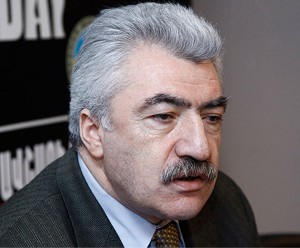“THERE ARE NO CLOSED ARCHIVES, WE HAVE TO WORK”
Interview with Director of the National archives of Armenia, Doctor of Historical Sciences Amatouni Virabyan.
 – How we prepare for the 100-th anniversary of the Armenian Genocide?
– How we prepare for the 100-th anniversary of the Armenian Genocide?
– Yet in 2012 we prepared and published a three-volume collection of documents “Armenian Genocide in the Ottoman Empire: evidence of survivors”, which includes the evidence of miraculously saved people about massacre and genocide by Turkish authorities in their settlements in 1916-1917. The book has received a great response among the readers of both Armenia and the Diaspora, even in Turkey. Even Turkish historians asked me to organize the publication of the collection in the Turkish language. Recently the Turkish translation of the book was published in Istanbul by the publishing house of Turkish human rights activist Zaqep Zakaroglu. The book will be translated also in Russian, French, Spanish and other languages.
– Turkey has repeatedly stated that the Armenian archives are closed to researchers.
– They probably have in mind the central archive of ARF Dashnaktsutyun in Boston, which is not a state archive and can be closed. The National archive of Armenia is open and each Turk researcher can come and work here, which I have repeated many times, even high-ranking officials of Armenia stated that.
We also create an electronic database of Genocide victims with their names, surnames, place of residence, as well as photographs, although very few of the latter retained. As a result we have collected information about 29 thousand families and it will be published in 20-22 volumes.
However there are still not investigated archives in Bulgaria, Argentina, Syria, Lebanon, Iran, Greece and other countries which are not closed. Today the archives of the then allies of Turkey are open. Our historians had worked in the archives of Germany. Archives of England, France, Austria are also open and researches were done there. We have to continue this work.
Interview by HASMIK POGHOSYAN
Category: #29 (1047) 31.07.2014 – 6.08.2014, News, Spotlight, Pages of History










